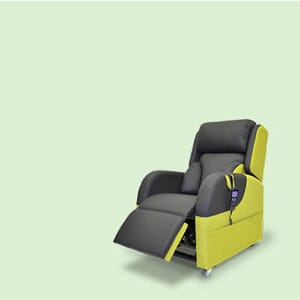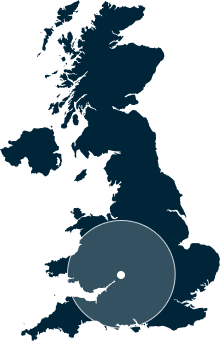Cerebral palsy refers to a group of neurological disorders that affect a person’s movement and posture. Choosing specialist seating and equipment that is adjustable and offers postural support is key in helping someone with cerebral palsy feel comfortable while maintaining a sense of independence. In this blog we’ll look at the benefits of Cerebral Palsy Chairs and Seating Solutions and how to choose a long term chair that suits your needs.
Cerebral Palsy Chairs And Seating Solutions: What To Look For
What Is Cerebral Palsy?
Cerebral palsy is a condition that is caused by damage to the development of the brain during pregnancy, birth or shortly after. It is an umbrella term that refers to a group of symptoms and disabilities that affect people’s movement and muscle control. The term cerebral means ‘of the brain’ while the term palsy means ‘lack of muscle control’. It is the most common motor and movement disability of childhood and while there is no cure, the condition does not get any worse. It affects people in many different ways and with varying degrees of severity: for some people, cerebral palsy will affect them physically, making muscle movements more difficult. Others may also be affected by seizures, epilepsy or difficulties with speech and language.
Postural Challenges Associated with Cerebral Palsy
Because cerebral palsy affects muscle control, a major challenge for sufferers is the ability to maintain sitting postures. Cerebral palsy can cause postural difficulties such as contractures and windsweeping, so it is important that any specialist seating accommodates a person’s posture comfortably over long periods and does not contribute to any further deterioration or pain.
What are Contractures?
Contractures occur when muscles become very stiff and shorten causing a constriction in the connective tissues of the body. This reduces flexibility and makes movement difficult. Because cerebral palsy prevents the muscles of the legs from being sufficiently stimulated, contractures commonly develop in the hips, knees, and ankles. If the contracted muscle is stretched, the muscle will become very rigid and cause increased pain. Specialist seating that has a negative angle leg rest can help accommodate anyone with this condition.
What is Windsweeping?
Windsweeping is a term used to describe someone’s posture where the legs appear to be falling one way and the hips and upper body, another way, says Annabell Crabtree from Premiere Healthcare. “It is common to see people with cerebral palsy adopt a windswept position so it is important that specialist seating can be adjusted to accommodate this posture and help the individual feel more comfortable while seated.” Chairs with head and backrests that can be modified and rotated independently have been designed with this in mind.
Why Adjustability is Crucial in a Cerebral Palsy Chair
Annabell says adjustability is the biggest feature to look for in a cerebral palsy chair. “The key thing is to provide seating that has an element of adjustability to it. Chairs such as the CareFlex Smart Seat Pro II or the Cura Contour have adjustable features that can be built around a person’s posture. This will help to accommodate them and also to prevent any further deterioration.”
The CareFlex range of chairs have several adjustable features such as tilt in space, a negative angle legrest, contoured cushions, armrests that can be angled, and pommels that can be off-set which will help to accommodate postural challenges such as contractures and windsweeping. The CareFlex Smart Seat Pro II is completely configurable and features a modifiable head and back system which can be independently rotated to stabilise postural asymmetries. These chairs will also help to control involuntary movements and support people with poor sitting balance.
The Cura Contour seating range is also a good option for people who require extra postural or back support. The Cura Contour’s fully adjustable back has been specifically designed to stabilise and, where possible, realign spinal asymmetries. The backrest can also be adjusted in offset and rotation to provide an adaptable mould to support numerous postural challenges. The Cura Contour Kinder chair offers even greater flexibility as the height and depth of the chair can be altered to adapt to the changing size of the user as they grow.
Optional Extras that Make a Big Difference
Additional items such as lap trays can be added to cerebral palsy seating to aid eating and drinking and give the individual a sense of independence. For even greater flexibility, electric systems can be linked up to enable a user to operate the controls on the chair electronically or to connect to communication devices such as Possum.
Find out more about Cerebral Palsy Chairs and Seating Solutions
At Premiere Healthcare we stock a range of specialist seating that is suitable for people with cerebral palsy. If you would like some more help deciding which cerebral palsy chair and seating option is right for your needs, please speak to one of our team. Our specialist seating assessors are fully trained to match clients with the right seating options and will conduct a thorough seating assessment of your needs before advising on a suitable seating solution.










